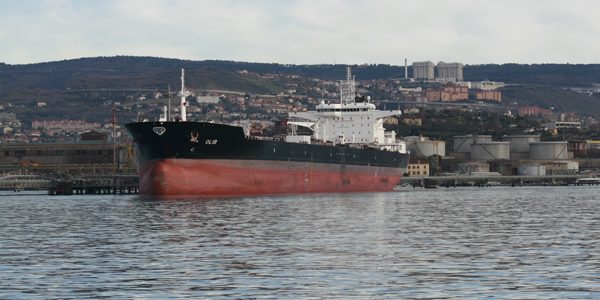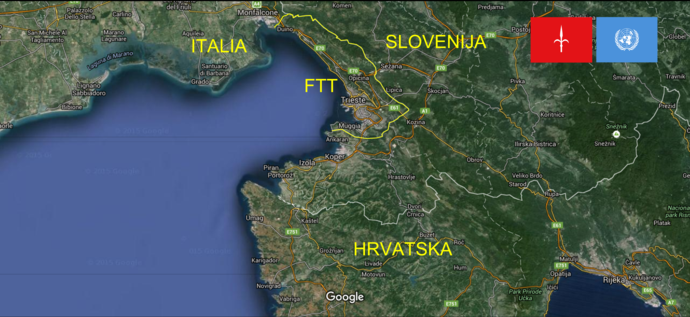
Oil terminal and costal fuel depots: this is Zaule, and Italy wants to force a LNG terminal here. This would be not only dangerous, but illegal, because it is against the international Free Port of Trieste’s legal status.
THE PETITIONS AGAINT LNG TERMINALS IN TRIESTE ARE INTEGRATED
THE ITALIAN MINISTRY OF ECONOMY IS PRESSING THE EUROPEAN COMMISSION. ITS GOAL IS TO RECEIVE THE APPROVAL FOR THE LNG TERMINALS IN BREACH OF THE LEGAL STATUS OF TRIESTE’S INTERNATIONAL FREE PORT.
Trieste, April 5th, 2013. – The Italian authorities are pressing the EU Commission to get the LNG Terminal in the port of Trieste approved. The idea is that Gas Natural’s LNG terminal be included among EU strategic energy facilities within the Energy infrastructure priorities for 2020 and beyond. However, doing so would breach the legal status of Trieste’s international Free Port. Hence Greenaction’s latest complaint to EU authorities.
Greenaction Transnational and Alpe Adria Green presented the EU authorities with many petitions and complaints. The European Parliament and the European Commission opened investigations and provided documented answers. This means the EU is paying much attention to the LNG terminals planned in the Gulf of Trieste. For this reason, Greenaction Transnational presented an urgent integration detailing, in international law, why the project is unfeasible.
The legal grounds had already been anticipated during Greenaction’s January 22nd hearing in Brussels. The hearing regarded three petitions: 483/2007, 1147/2008, 1472/2009; the European Commission did not answer, however, the European Parliament included them in two investigations, one by the Committee on Industry, Research and Energy and the other by the Committee on the Environment, Public Health and Food Safety. Furthermore, Croatia was included in the evaluation procedures.
Indeed, the project poses risks not only for Trieste, but also with its bordering States (Italy and Slovenia) and their neighbors (Croatia.)
Gas Natural’s planned LNG terminal conflicts with the legal status of Trieste’s port, which is established under the 1947 Treaty of Peace with Italy (Allegato VI, art. 34) as a State corporation of the Free Territory of Trieste:
A free port shall be established in the Free Territory and shall be administered on the basis of the provisions of an international instrument drawn up by the Council of Foreign Ministers, approved by the Security Council, and annexed to the present Treaty (Annex VIII). The Government of the Free Territory shall enact all necessary legislation and take all necessary steps to give effect to the provisions of such instrument.
Art. 3.2 of Annex VIII adds to it that:
The establishment of special zones in the Free Port under the exclusive jurisdiction of any State is incompatible with the status of the Free Territory and of the Free Port.
The question of the legal status of the Free Port of Trieste does obviously regard also the city and its province: since 1992, they constitute the present-day Free Territory of Trieste.

The present-day Free Territory of Trieste (since 1992).
Source: Greenaction Transnational
Translated from blog “Environment and Legality” by Roberto Giurastante
